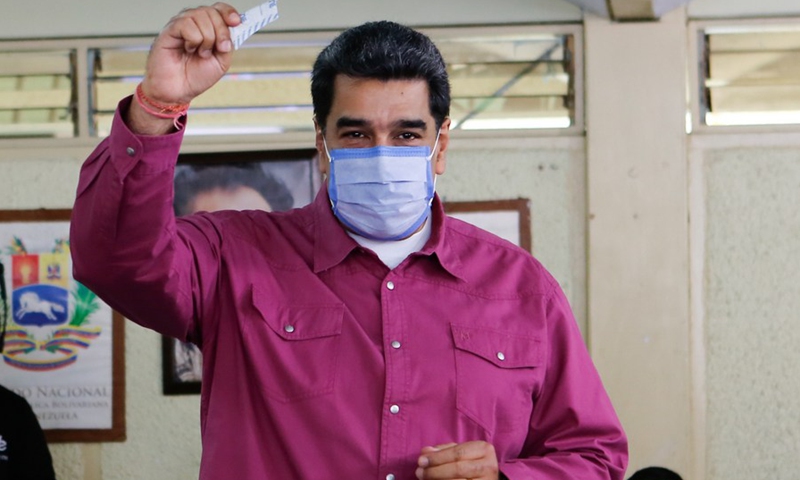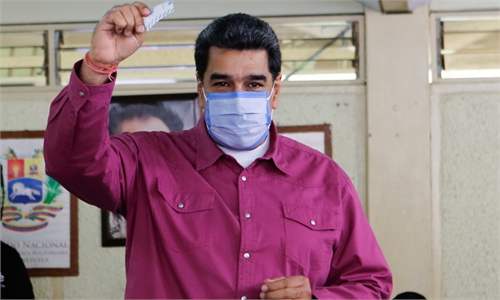
Venezuelan President Nicolas Maduro prepares to cast his vote at a polling station in Caracas, Venezuela, Dec. 6, 2020. The elections to select the 277 deputies who will accede to the Venezuelan National Assembly for the period of 2021 to 2026 began in the early hours of Sunday.(Photo: Xinhua)
A new Venezuelan parliament was to be sworn in on Tuesday with the main thorn in the ruling party's side, Western backed opposition leader Juan Guaido, out in the political cold.Guaido, backed by the US and more than 50 other nations, proclaimed himself as the interim president in 2019, but President Nicolas Maduro is still considered the legitimate leader of the country.
The opposition boycotted the December 6 legislative elections that returned a large majority for Maduro's party. The National Assembly formerly enjoyed an opposition majority.
This means that on Tuesday, Guaido was to be out of his job as National Assembly speaker, losing the limited institutional legitimacy he had, leaving foreign governments backing his claim to the presidency in a difficult position.
Guaido is faced with increasingly feeble opposition mobilization. A referendum-style consultation called by Guaido held over five days in December for people to condemn the December 6 vote and Maduro with it, failed to muster the large numbers of opposition supporters that participated in the protests of 2019.
On January 23, 2019, Guaido proclaimed himself interim president before a large crowd after the then-opposition controled the parliament. The president refused to cede, and the standoff continues until now.
Maduro calls Guaido a US-backed puppet seeking to oust him in a coup to control Venezuela's considerable oil reserves. He has said the December 6 elections had the same electoral conditions as the 2015 vote won by the opposition.

